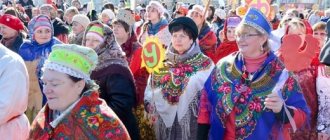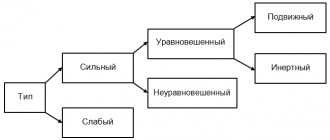- Types of old age
- Human response to aging
- Distinctive features of the psychology of the elderly
- Physiology
- Psyche
- Society
People after 60-65 years old face certain difficulties in communication and often have signs of dementia, which is accompanied by persistent memory loss, loss of communication and self-care skills.
Having lived a long life, older people often need special care and may behave inappropriately by general standards. But we cannot judge old people from the perspective of youth and health - this is a fundamentally wrong approach. The task of loved ones is to accept the psychological characteristics of older people and help them organize their lives and maintain a decent quality of life. If for some reason it is impossible to personally provide decent care, you should contact professional organizations where your loved one will receive everything they need for a full-fledged life. Our boarding house has created comfortable living conditions. Specialists take into account the psychological characteristics of the elderly, the peculiarities of the body’s functioning, and plan regular care, which includes, among other things, the provision of medical services. Guests can walk in the pine forest, communicate with relatives, follow medical recommendations and enjoy a life full of impressions and pleasant emotions.
Mental characteristics of older people
In almost all cases, characteristic features of older people associated with memory are observed. For example, along with the deterioration of the ability to remember, the memory of recent events and intentions or actions related to current life is also impaired.
In old age, it is difficult to remember appointments, dates, phone numbers, new names. An elderly person very quickly forgets what he recently saw on TV or read, and has difficulty remembering where he put an object.
The social status of an elderly person is also changing. And this negatively affects his moral and financial situation, mental state, makes him vulnerable to diseases and poorly adaptable to weather changes.
When a person becomes a pensioner, most often his relationships with other people radically change, as well as his understanding of the meaning of life, happiness, good and evil, and so on. The lifestyle, daily routine, goals and objectives, and social circle become different.
In addition, the hierarchy of self-esteem changes in an older person. He pays less and less attention to his appearance, but more to his internal and physical condition. The older a person is, the more he goes into the past, forgetting about the present and the future. Life prospects become shorter, and the near future naturally prevails over the distant one. Time passes faster for older people, but it is filled less and less with events. As a rule, active people pay more attention to the future even in old age, while passive people pay more attention to the past. Therefore, the former remain optimistic longer.
Dementia
A disease characteristic of late age associated with organic processes: vascular and atrophic-degenerative changes in brain tissue. Progresses quickly. In the initial stages, dementia is manifested by minor changes in behavior, fatigue, problems with concentration, and memory loss. Without treatment, speech disorders appear, symptoms of neurological disorders increase, and the person loses the ability to self-care.
Types of dementia: vascular, atrophic and mixed. Therapy is aimed at slowing down degenerative processes. It is difficult to achieve restoration of lost functions, and therefore early diagnosis is important for dementia. The sooner the disease is detected, the more effective the treatment will be.
Social and psychological characteristics of older people
According to most sociologists and psychologists, old age is a stage of the life cycle that is characterized by regular social losses with an almost complete absence of gains. At this stage, major life goals have usually been achieved, responsibilities have decreased, participation in social life has decreased, and dependence on others has increased.
It is obvious that the psychological and social characteristics of older people are largely determined by a combination of factors such as a decline in physical capabilities, loss of social status associated with the work performed, a change in function in the family, death or the threat of loss of a loved one, deterioration of material living conditions, forced adaptation to rapid cultural and everyday changes. After all, it is precisely because of this that most of them have a smaller social circle and a change in behavior, leading to the emergence or aggravation of feelings of loneliness.
In addition, older adults are especially likely to lack communication skills. He ceases to be interested in other people, to ask questions, rarely encourages and encourages the interlocutor, and shows almost no benevolence and trust. Most often, he cannot fully express his feelings and does not use such nonverbal manifestations as intonation and facial expressions. And even when an elderly person outwardly seems quite sociable, psychologically he is not always ready for new acquaintances.
Many scientists are trying to combine the social and psychological characteristics of older people discussed above into separate groups depending on their behavior in order to characterize people susceptible to loneliness. For example, from the point of view of the Polish psychologist L. Simeonova, the following types of behavior are distinguished:
- A person puts his own success in the center of attention and experiences an insatiable need for self-affirmation. As a result, he loses interpersonal contacts and communication.
- Monotonous behavior, when older people follow a certain role established by themselves, which does not allow them to behave relaxed, uninhibited and natural when communicating with others.
- All a person’s attention is directed to his feelings. At the same time, he considers the events in his life and internal state to be special. Such elderly people develop suspiciousness, gloomy forebodings, and panicky fear for their health.
- Non-standard behavior – that is, a discrepancy between actions and worldviews accepted in a certain social group with the norms and rules. There may be two reasons for such social characteristics of older people: the first is a unique vision of the world around us and the original imagination inherent in a creative person; the second is an unwillingness to take others into account and the belief that everyone should adapt to him.
- Low self-esteem with the resulting fear of becoming uninteresting to others. This is especially true for modest people who underestimate themselves and always try to stay in the shadows. They are usually not rejected, but they simply do not notice that they are experiencing quite painful things.
A group of scientists at the University of California led by E. Siegelman received interesting information about the predisposition to loneliness, taking into account the personality type of an elderly person. They identified the following traits as having a particularly negative impact on psychological adaptability:
- underestimation and self-pity;
- tendency to depression;
- the desire to keep people at a distance and avoid close communication;
- deceit and deceit, unreliability, hostility towards others, a tendency to attribute one's feelings and motives to others.
Based on this and taking into account the analysis of scientific literature, we can identify the most common social and psychological characteristics of older people:
- decreased sociability;
- low self-esteem and self-esteem;
- decrease in social activity;
- changes in the structure of psychological time;
- decreased resistance to stress;
- development of a sense of uncertainty;
- susceptibility to sadness for no reason and others.
These psychological characteristics of older people can cause their social loneliness.
We recommend
“The best boarding house for the elderly: making the right choice” Read more
Nutritional features of older people
It is important to take into account nutritional characteristics when feeding an elderly and sick person.
Nutrient requirements
Squirrels . Taking into account the characteristics of the aging body, the daily amount of protein for men under the age of 75 should be 68 g, over 75 years - 61 g. And for women - 61 and 55 g, respectively. Calculated per 1 kg of body weight, the protein requirement is 1–1.3 g. Excessive protein consumption should be strictly avoided, as this contributes to the development of atherosclerosis, as well as overload of the kidneys and liver.
Fats . An elderly person's diet should include low-fat dairy, fish and seafood products.
The daily intake of fat corresponds to 77 and 65 g for men and 66 and 57 g for women. In this case, the proportion of vegetable fats should be at least 30% in order to sufficiently provide the body with polyunsaturated fatty acids. It is recommended to include in the diet oleic and linolenic fatty acids (olive oil, seafood, flaxseed and hemp oils), which reduce blood viscosity and prevent the formation of blood clots, and also reduce the risk of cardiovascular diseases. Foods high in fat should be excluded.
Carbohydrates . Carbohydrates are the main source of energy and should make up at least 50–55% of the total calorie intake. The daily requirement for carbohydrates is 335 and 280 g for men and 284 and 242 g for women. It is important that the proportion of simple sugars does not exceed 10–15% of the total amount of carbohydrates, because their excess increases the synthesis of cholesterol in the liver, increases blood sugar and the risk of developing cancer.
Taking into account the physiological characteristics of older people, they need to consume sufficient amounts of fiber and other complex carbohydrates. The required amount of dietary fiber in the diet helps stimulate intestinal motility, the formation of beneficial microflora in it and is a good prevention of cancer.
Vitamins . An elderly person should especially pay attention to vitamins that have anti-sclerotic, hypotensive (lowering blood pressure), lipotropic and antioxidant effects.
These include: vitamins B6, PP, folic acid, vitamin E, β-carotene. It is also necessary to regularly maintain the level of vitamin C in an elderly body, because it helps to increase redox reactions, normalizes metabolism, slows down the aging process, has a lipotropic effect and helps absorb iron.
In old age, polyhypovitaminosis (deficiency of several vitamins) often occurs.
Basic principles of nutrition for older people
- It is recommended to limit the consumption of animal fats, such as butter, cream, fatty meats, and fish roe. Food should be cooked without adding fat: stewed, baked, boiled or steamed.
- It is necessary to minimize the consumption of sugar and salt. The norm of sugar per day is no more than 50 grams (in drinks, confectionery), salt – no more than 5 grams (in fish and meat dishes).
- Low-fat fermented milk drinks enriched with probiotics are beneficial.
- You should definitely add polyunsaturated fatty acids to your diet. They are found in vegetable oils and in fatty fish.
- You need a sufficient amount of vitamin C, contained in rosehip decoction, oranges, lemons, currants, blueberries, gooseberries, and grapefruits.
- It is recommended to eat foods containing a lot of potassium and magnesium salts: prunes, carrots, cabbage, milk, rice, nuts, beets, dried apricots, millet, potatoes.
- It is worth increasing the consumption of foods enriched with dietary fiber: whole grain bread, bran bread, vegetables, berries, fruits.
- An elderly body definitely needs B vitamins contained in fish, bran, cereals, bread, dairy and legumes.
- Meals should be small and frequent.
Taking into account all the characteristics of an elderly person’s body, its normal functioning requires regular consumption of the following products:
- Fermented milk drinks with reduced fat content: yoghurt, fermented baked milk, kefir. They contain calcium, protein, vitamin B2.
- Any cereals, as they contain natural dietary soluble fiber. Regular consumption of oatmeal lowers blood sugar and cholesterol levels. Other cereals are no less useful, and they should be consumed several times a day.
- At least 3 times a week you need to add legumes to your diet: lentils, peas, beans. They contain protein and phytoestrogens, which significantly reduce the risk of developing osteoporosis and cardiovascular diseases. But these products are strictly contraindicated for people suffering from kidney disease, joint disease or gout.
- You should eat fatty fish such as sardines, herring, mackerel at least 3 times a week. Fish oil ensures proper and coordinated functioning of the heart, strengthens the immune system, and also normalizes cholesterol metabolism. Fish is rich in vitamins A and D, protein, iron, zinc.
- It is imperative to regularly consume greens (parsley, dill, cilantro), they saturate the body with folic acid and vitamin C. It is better to eat fresh greens at least twice a day.
- Elderly people especially benefit from berries and fruits rich in biologically active compounds and natural dietary fiber. They protect the elderly body from the development of malignant tumors, and blood vessels from the accumulation of cholesterol.
- Daily consumption of nuts and seeds is recommended. They contain protein, vitamins and polyunsaturated acids.
- Vegetables are useful raw, stewed or boiled.
We recommend
“How to choose a boarding house for the elderly: 10 steps” Read more
Features of care for the elderly
Old age is not a disease, but it significantly limits a person’s capabilities. In this regard, there are certain features of working with older people. Due to the fact that immunity weakens over the years, the body is more often attacked by various infections, and diseases are more severely tolerated.
Therefore, caring for an elderly person also includes taking a set of measures to strengthen the body: starting with the necessary diet and ending with physiotherapeutic procedures. It is important to regularly carry out a medical examination in order to identify the first signs of the development of pathological processes.
Mental health also declines with age. An elderly person experiences problems with memory and concentration; he often experiences mood swings, depression, and sleep disturbances. Therefore, in most cases, you may need the help of a psychologist. You should be aware of the peculiarities of communicating with older people and be tactful, patient, attentive and positive.
Of course, dealing with this on your own can be difficult. Today, almost all people are busy with work and are not able to show enough care and attention to the elderly members of their family. And those who have such an opportunity are unlikely to have all the necessary medical knowledge and skills. There are several ways to cope with the situation.
- Caring for an elderly relative on your own.
Many people believe that no one else can take good care of their elderly relative. However, as has been said, caring for an elderly person is not an easy job, requiring not only free time, but also knowledge. In reality, any mistake can be fatal. It happens that an elderly relative turns out to be a difficult test for the family.
- Nurse services.
A professional nurse is a specialist with a medical diploma who knows all the features of working with older people, is able to strictly follow all medical instructions, is patient, easy-going, friendly and decent. You must trust this person unconditionally, since he will be in the apartment even when you are not there. You should not look for such a specialist through advertisements; there is a high risk of stumbling upon scammers. It is much safer to inquire at a nursing home or private clinic about the service of a visiting nurse.
- Care for an elderly person with accommodation in a public institution.
You can only be admitted to a state nursing home with a referral. But to do this, you have to overcome many formalities - collect medical certificates, documents from the social security department and the Pension Fund, take an extract from the house register. If after this they do not refuse you and you receive a referral, you will have to wait your turn, because most government institutions are full and there may not be any vacancies.
As a rule, they provide live-in care for older people only when loved ones are unavailable or independent care is available. Staying there is free or very inexpensive (payment is deducted from the pension). But most establishments have problems with financing, which is why the features of living there leave much to be desired. You may find that the premises are clearly in need of repair, there is a shortage of medicines, and sometimes even the simplest household items (for example, soap or washing powder) become in short supply.
State nursing home staff may be dedicated professionals, but their meager pay discourages them from working hard. Under such conditions, it is obvious that they will have neither the opportunity nor the desire to organize cultural leisure for patients.
- Accommodation in a private boarding house for elderly people in need of care.
Commercial boarding houses for the elderly best take into account the features of social work with older people. Either pensioners themselves or their relatives pay for their accommodation, and there are usually no problems with financing there. The goal of a private boarding house is to attract more clients. Therefore, such establishments regularly improve the level of service, offer unique opportunities, as well as favorable payment terms.
Most often they are cottage-type houses located in the suburbs, near a forest or park. Guest rooms are more reminiscent of hotel rooms, differing only in furnishings adapted to the needs of the elderly. In such institutions, pensioners are treated, undergo rehabilitation therapy courses, and also have a good rest. Such centers regularly organize various entertainment programs and leisure activities.
The employees are always highly qualified doctors and nurses specializing in caring for the elderly. And the cost of living in a private boarding house is not much higher than paying for the services of a professional nurse.
We recommend
“First aid for the elderly: what you need to know about it” Read more
Senile egoism - a disease or a common condition?
Senile egoism refers to the need of older people to prove their importance. The expression “both old and small” did not arise out of nowhere - this condition is inherent in both children and old people. The difference is that a child grows and develops, getting rid of whims, while in an old person, on the contrary, this quality manifests itself more and more over the years.
Having lost strength or health, old people can no longer influence the world as in years past, but the need does not disappear anywhere. As a result, older people begin to behave capriciously, demonstrate their importance, make demands, in every possible way attracting the attention of others.
A family living with such a relative needs to be extremely patient, but it will not be possible to completely eliminate selfishness and parasitism from the realities of coexistence, no matter how comfortable living conditions are created for the old person.
How to draw the line between illness and natural age-related changes, dementia and senile egoism? How can relatives understand in what cases an old person behaves normally and in what cases he behaves abnormally? Only a doctor can accurately assess the situation. In such circumstances, assistance is provided by gerontologists; in their absence, by psychiatrists or psychologists. Relatives need to monitor changes in the treatment process and observe how the patient behaves.
It often happens that signs of senile egoism begin to appear with age and in completely normal people. Helplessness, fear of loneliness and death, lack of attention - all this contributes to the fact that an ordinary person begins to manifest senile egoism.
Elderly people are characterized by the following character changes:
- moodiness;
- selfishness;
- egocentrism;
- conservatism;
- penchant for moralizing;
- intractability;
- narrowing of interests.
These are not particularly pleasant, but still natural changes that can be designated by the term “senile egoism.” But if a person behaves inappropriately, suffers from memory lapses, gets lost in space, becomes unkempt, then in this case it is necessary to consult a psychiatrist. Unfortunately, it is impossible to cure senile dementia, but specialists can slow down the course of the disease and prevent it from progressing. It must be remembered that treatment will be more effective if the disease is detected at an early stage.
We recommend
“Swelling of the legs in an old person: causes of occurrence and methods of treatment” Read more









